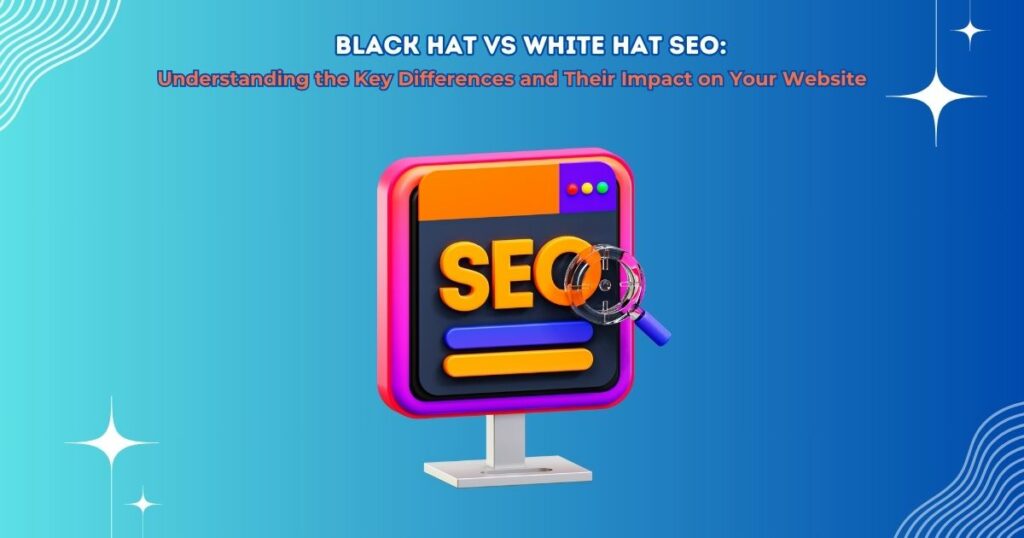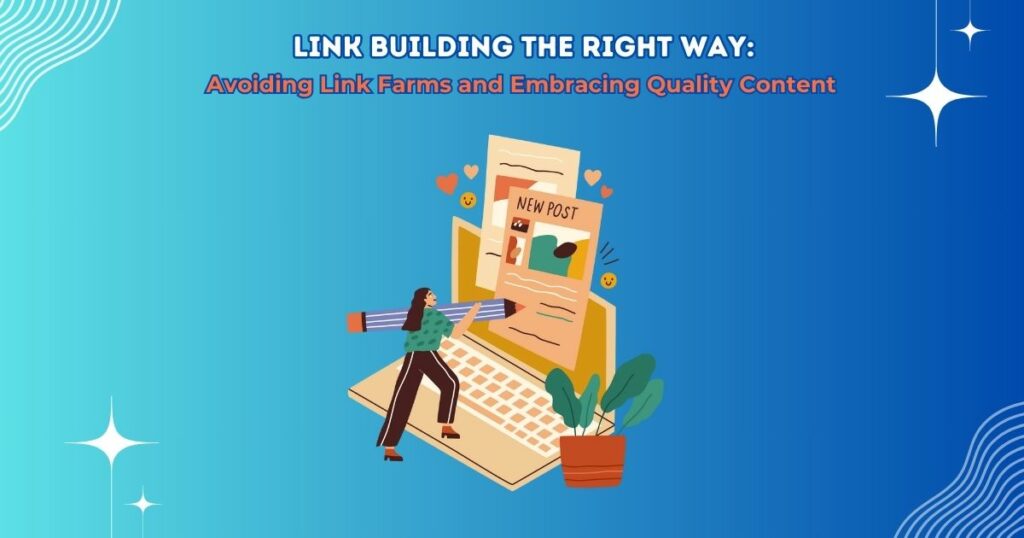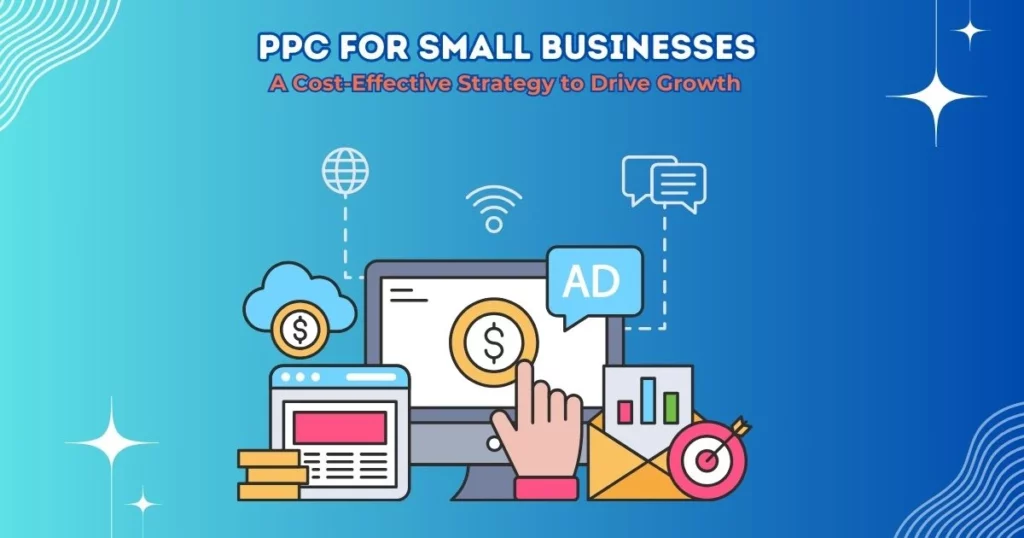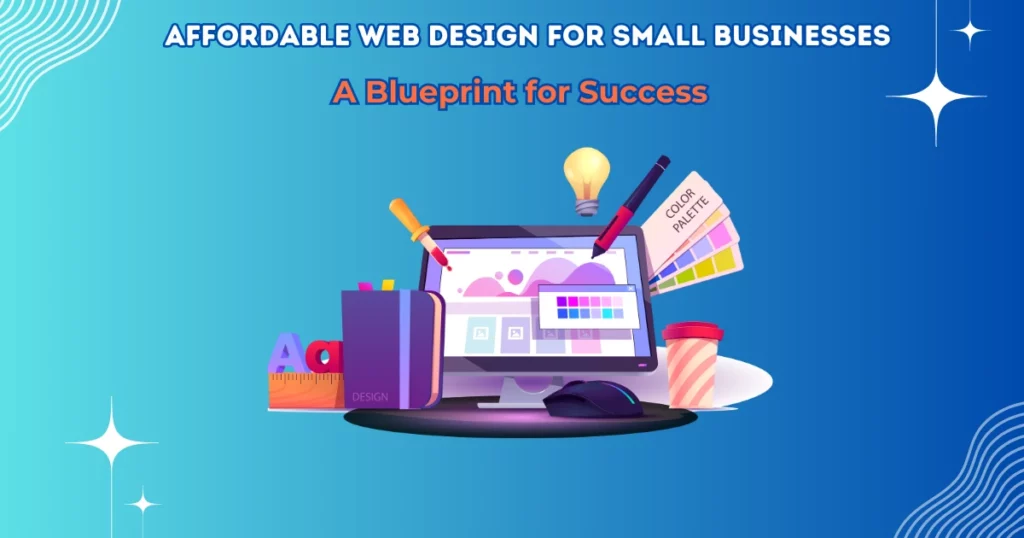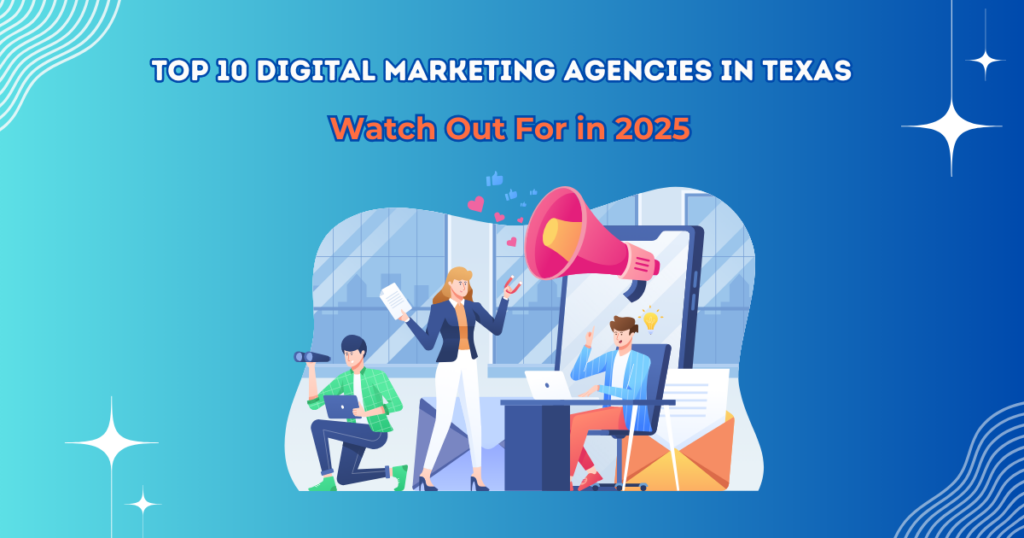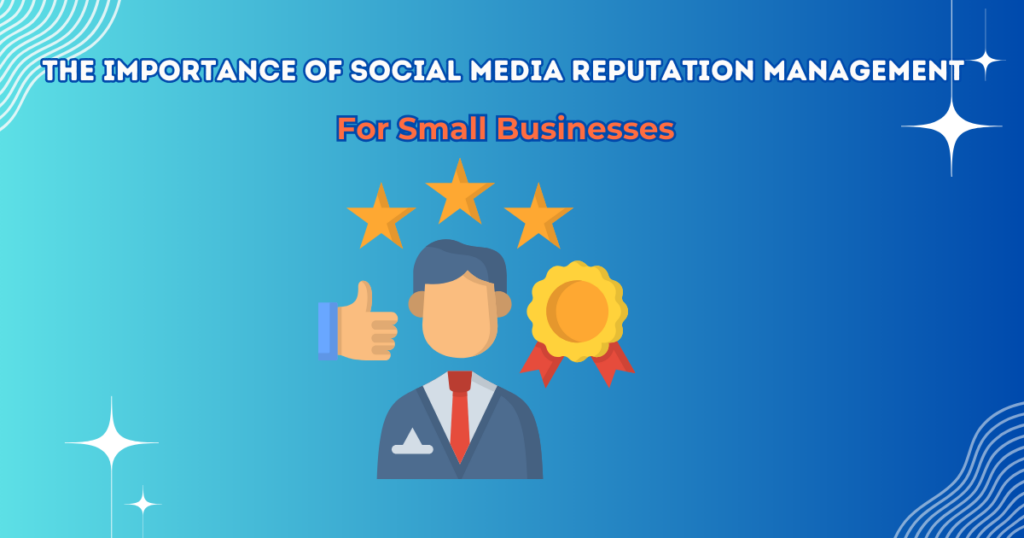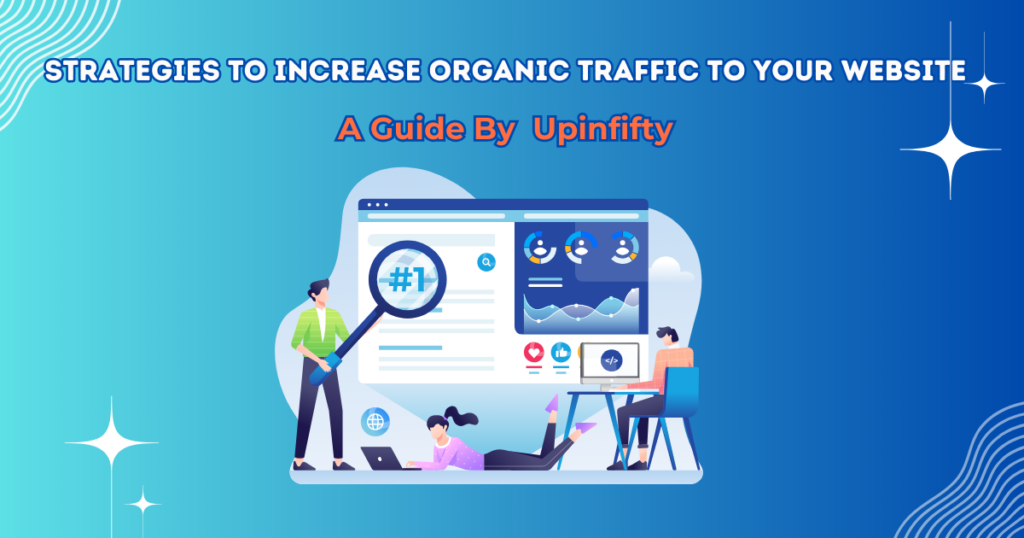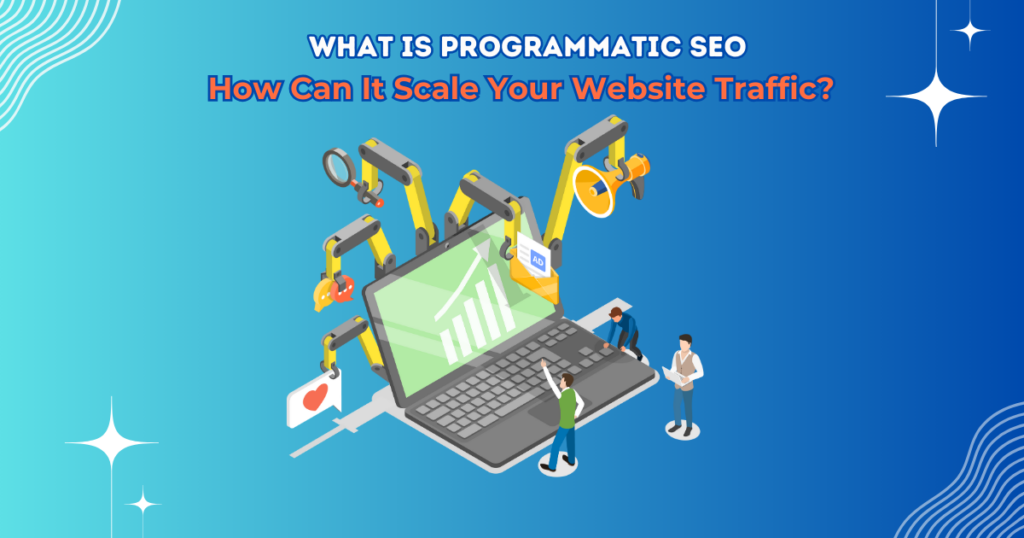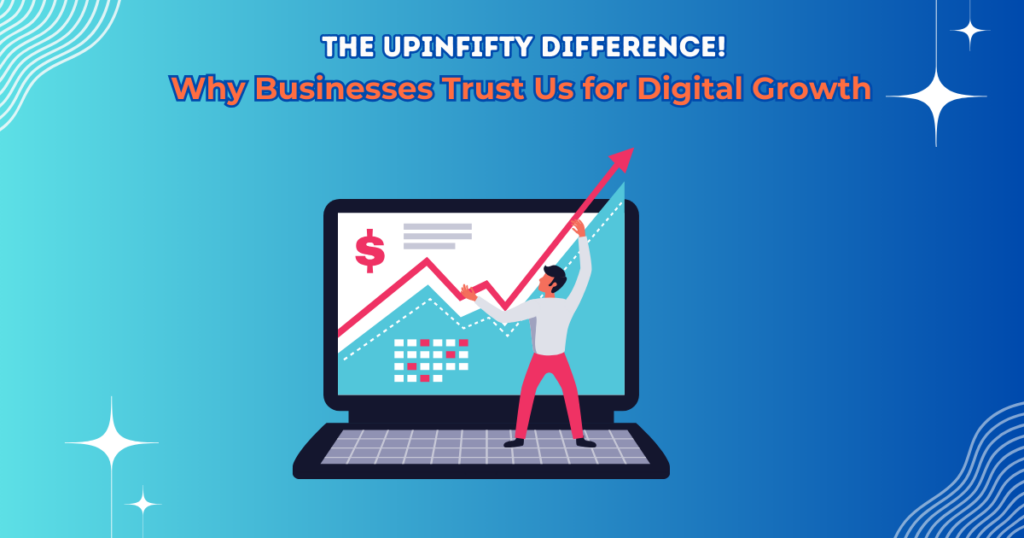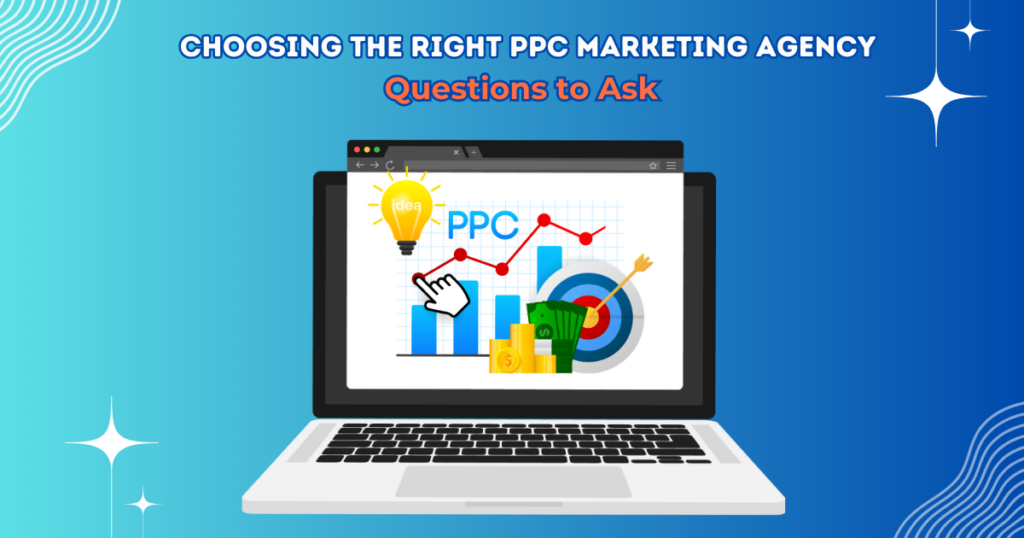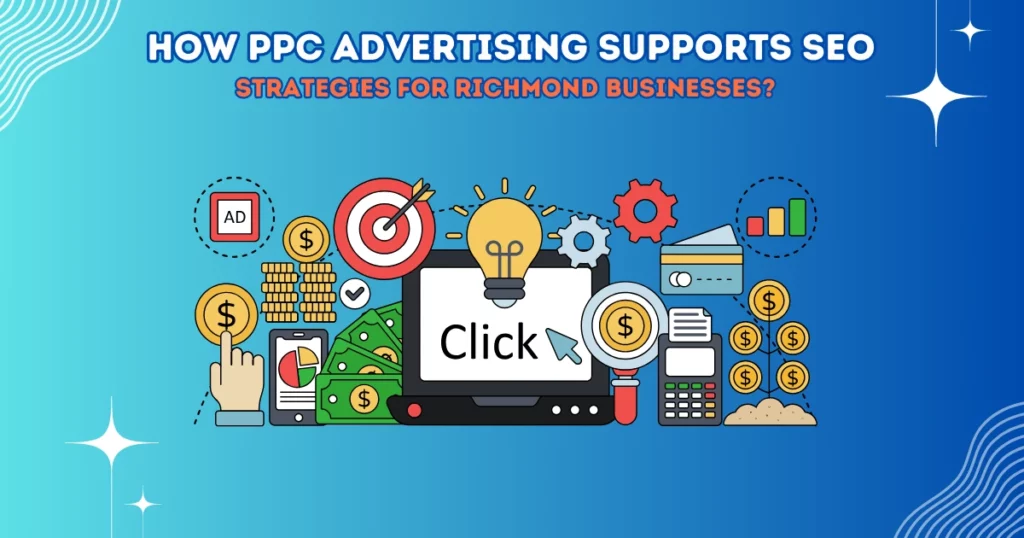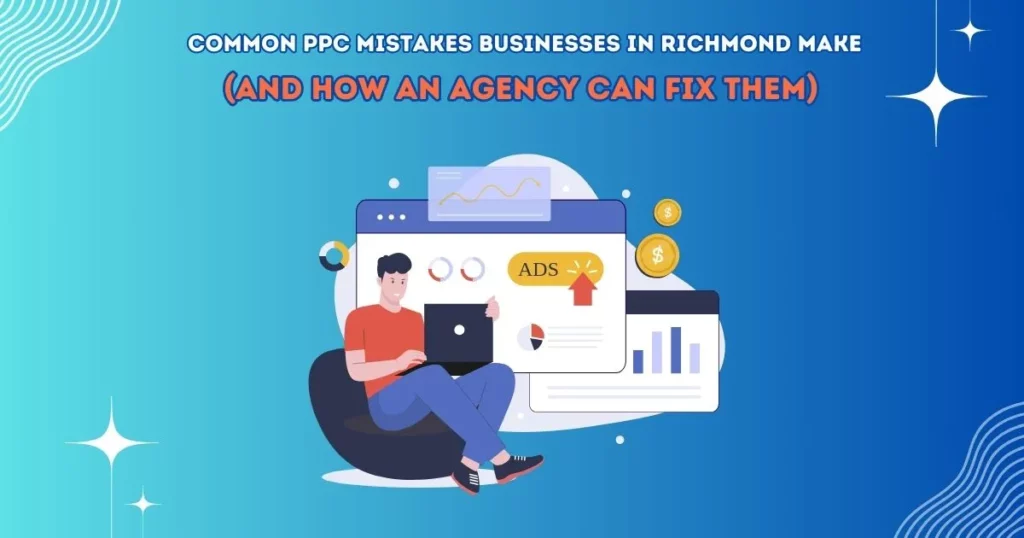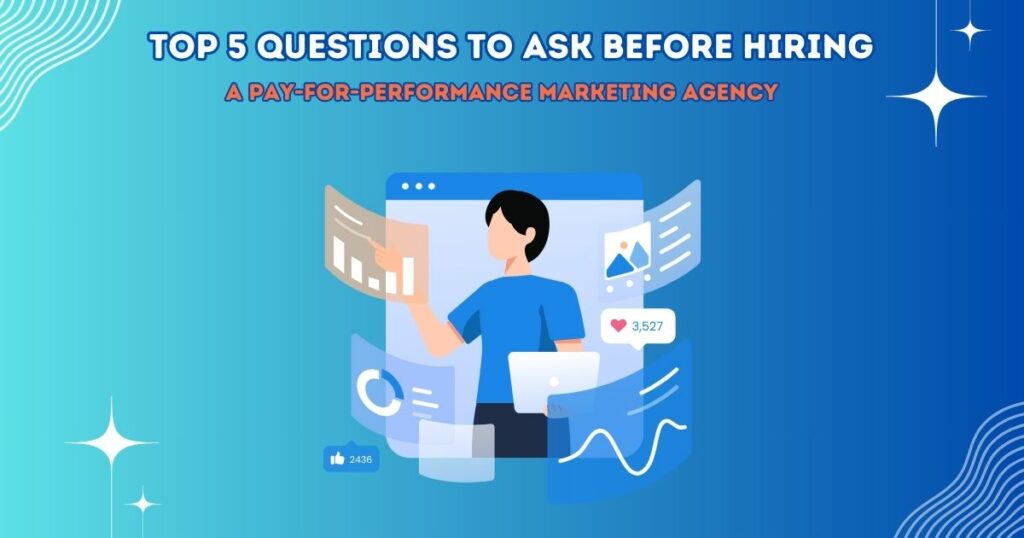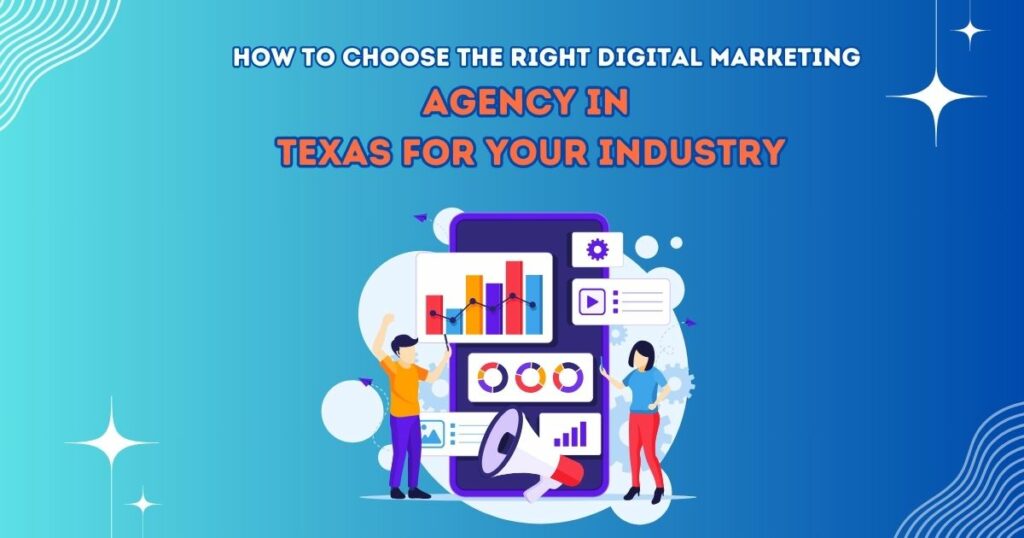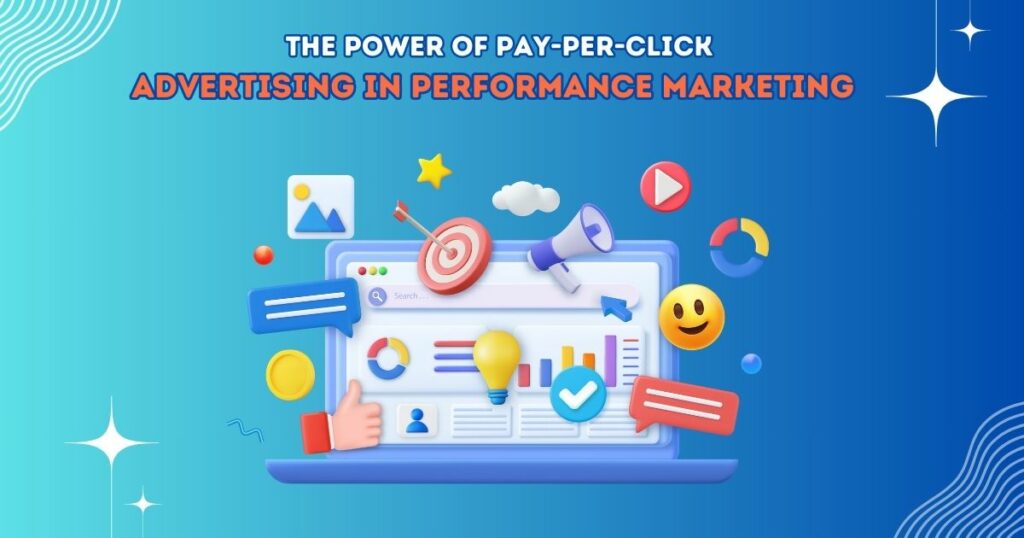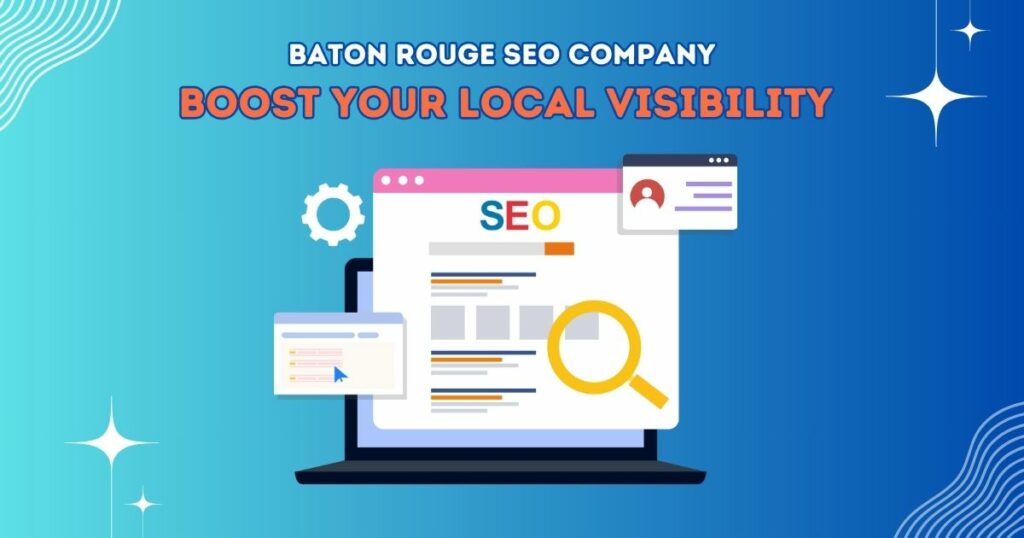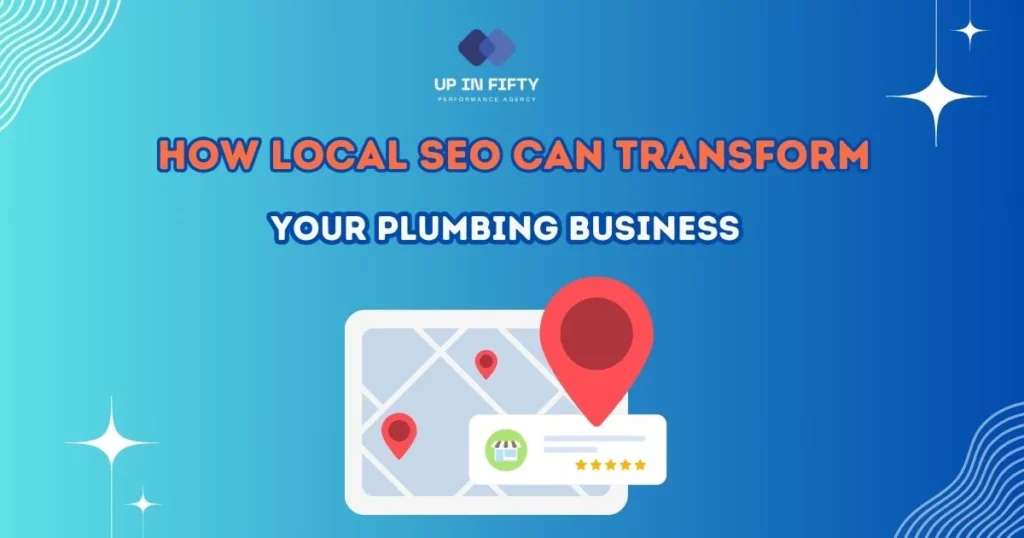Blog
Black Hat vs White Hat SEO: Understanding the Key Differences and Their Impact on Your Website
In the world of SEO, black hat SEO and white hat SEO are two distinct approaches that can have very different outcomes for your website. While both aim to improve search engine rankings, their methods and long-term effectiveness vary greatly. In this blog, we’ll break down the key differences between these two SEO techniques, the pros and cons of each, and why choosing ethical SEO practices is essential for long-term success. What is Black Hat SEO? Black hat SEO refers to unethical SEO practices that are designed to manipulate search engine algorithms and quickly gain rankings. These techniques are typically intended to deceive search engines into ranking a website higher than it deserves, often by exploiting loopholes in search engine guidelines. While black hat methods may offer fast results, they come with significant risks that can severely damage a website’s reputation. Common Black Hat SEO Techniques: While black hat techniques might show quick results, they are ultimately unsustainable and risky. What is White Hat SEO? On the other hand, white hat SEO follows ethical, transparent practices that aim to improve your website’s ranking through strategies approved by search engines like Google. White hat SEO focuses on creating value for users while adhering to search engine guidelines. It may take longer to see results compared to black hat techniques, but the gains are more sustainable and align with long-term goals. Common White Hat SEO Techniques: White hat techniques focus on sustainability and authenticity, making them the best choice for long-term SEO success. SEO Techniques Comparison: Black Hat vs White Hat Black Hat SEO vs White Hat SEO Aspect Black Hat SEO White Hat SEO Approach Manipulative, deceptive Ethical, transparent Risk High risk of penalties or bans from search engines Low-risk, sustainable results Results Quick, short-term improvements Slow, long-term improvements Content Quality Often low-quality, stuffed with keywords High-quality, user-focused content Backlinks Often purchased or generated through link farms Earned through outreach and valuable content Sustainability Unsustainable, short-lived Sustainable, long-term growth Pros and Cons of Black Hat SEO Pros: Cons: Pros and Cons of White Hat SEO Pros: Cons: Why White Hat SEO is the Best Choice for Your Business While black hat SEO might seem like a quick fix for ranking higher in search results, it’s a dangerous gamble that can result in severe penalties and long-term damage to your website’s SEO and credibility. White hat SEO, on the other hand, offers a solid foundation for building a reputable, sustainable online presence. Focusing on ethical SEO practices—such as creating valuable content, earning quality backlinks, and improving the user experience—ensures that your website remains compliant with search engine guidelines, maintains high rankings, and attracts organic traffic. The key to long-term SEO success lies in building a strategy that prioritizes the user and adheres to proven ethical techniques. Choose White Hat SEO for Long-Term Success If you’re looking to improve your website’s SEO and rankings without risking penalties or harming your brand’s reputation, white hat SEO is the way to go. While it requires more time and effort than black hat techniques, the results are more rewarding and sustainable in the long run. At Upinfifty, we specialize in providing ethical SEO solutions that focus on quality, transparency, and long-term success. Our team of experts will work with you to develop a customized SEO strategy that follows best practices and delivers tangible results. Contact Upinfifty today to learn how we can help you grow your website with white hat SEO techniques that drive real, sustainable growth.
Link Building the Right Way: Avoiding Link Farming and Embracing Quality Content
When it comes to SEO, link building is often seen as one of the most powerful strategies to boost rankings and drive organic traffic to your website. However not all links are created equal, and relying on low-quality tactics like link farms can hurt your site more than help it. In this blog, we’ll break down why link farming is a no-go and explore how you can build backlinks the right way—through quality content and strategic SEO practices that ensure long-term success. What is a Link Farming? A link farming is a network of websites created solely for the purpose of generating backlinks to other sites. These sites are usually irrelevant, spammy, and offer little to no real value to users. They’re often loaded with hundreds (or even thousands) of low-quality pages that exist just to link to other websites in an attempt to manipulate search engine rankings. While it might seem like a shortcut to gaining backlinks, link farms are a red flag for both search engines and users. Let’s take a closer look at why this practice should be avoided. Why Should You Not Rely on Link Farms? It can be tempting to take a shortcut when building links, but link farms come with serious risks that can ultimately harm your website’s SEO efforts. Here’s why you should avoid them at all costs: 1. Google Penalties Google’s algorithm is designed to identify and penalize sites that engage in manipulative SEO tactics, like using link farms. If Google detects that your website is relying on low-quality, spammy backlinks, you could face penalties that result in a significant drop in rankings or even removal from search results. 2. Damaged Reputation Google isn’t the only entity that cares about the quality of your backlinks. Your website’s reputation among users and other website owners is also at risk. When your site is linked to low-authority, irrelevant pages, it signals to search engines and visitors that your content might not be trustworthy or high-quality. Over time, this can harm your credibility and user trust. 3. Irrelevant Links Don’t Provide Value Backlinks are meant to come from relevant, high-authority sites that are related to your niche. Link farms typically generate backlinks from random, unrelated sites, which means these links have little to no impact on your site’s authority or rankings. In fact, these backlinks are unlikely to drive any real traffic or increase your site’s domain authority in any meaningful way. 4. Short-Term Gains, Long-Term Losses While you may see some initial rankings improvements from link farms, the long-term consequences are severe. Once Google identifies and devalues these links, your site could lose any progress it made, making those initial gains short-lived. How to Build Links the Right Way Instead of relying on harmful link farms, focus on building high-quality, organic backlinks through ethical SEO strategies. Here are some actionable tips on how to build links the right way: 1. Create High-Quality, Shareable Content The best way to earn backlinks is by creating valuable content that people want to link to. Blogs, case studies, infographics, and whitepapers are excellent content types that can generate organic backlinks when shared. To increase your chances of getting backlinks, make sure your content answers common questions, provides actionable advice, or solves specific problems. Content that is insightful and informative is more likely to be shared by others in your industry. 2. Guest Blogging Guest blogging is one of the most effective ways to build backlinks ethically. By contributing valuable content to other reputable blogs in your industry, you not only get a link back to your site but also expose your business to a new audience. However, it’s important to choose the right sites to guest post on. Focus on authoritative, niche-specific blogs that have an engaged audience and a strong reputation in your industry. This ensures that the backlinks you receive are valuable and relevant. 3. Broken Link Building Broken link-building is a highly effective and ethical link-building technique. It involves finding broken links on authoritative websites and suggesting your content as a replacement. This strategy benefits both you and the website owner—while you get a valuable backlink, the website owner fixes a broken link on their site. You can use tools like Ahrefs or Check My Links to find broken links on sites in your industry, then reach out with a well-crafted email suggesting your content as an alternative. 4. Build Relationships with Industry Influencers Building relationships with influencers in your niche can help you earn high-quality backlinks. By collaborating on content, interviews, or even industry reports, you can secure valuable backlinks that enhance your website’s authority. Start by engaging with influencers on social media, commenting on their blog posts, and sharing their content. This can help you establish genuine relationships that could lead to backlink opportunities. 5. Leverage Social Media for Content Promotion While social media links don’t directly influence SEO, promoting your content on platforms like Twitter, LinkedIn, and Facebook can increase the visibility of your content. As more people see and engage with your posts, it increases the likelihood that others will link to your content on their own websites or blogs. Why Quality Content is the Foundation of Link Building At the end of the day, quality content is what drives successful link-building. High-quality content naturally attracts backlinks because it provides value to readers, answers their questions, and helps solve their problems. Without high-quality content, no link-building strategy will have lasting effects on your SEO. Building links through tactics like guest blogging or broken link building only works if the content you’re promoting is exceptionally valuable. Google prioritizes content that answers user intent, so focus on creating content that stands out in your industry. Build Links the Right Way, Achieve Sustainable SEO Success When it comes to SEO, link building is essential—but it’s important to do it the right way. Avoid link farms and focus on strategies that will build sustainable, high-quality backlinks. By creating valuable content, guest blogging, and building […]
PPC for Small Businesses: A Cost-Effective Strategy to Drive Growth
In the fast-paced world of digital marketing, Pay-Per-Click (PPC) advertising is a game-changer, especially for small businesses looking to compete with larger players without a massive marketing budget. At Upinfifty, we believe that PPC offers an affordable, measurable, and highly effective way for small businesses to drive traffic, boost conversions, and grow their brand online. Whether you’re new to PPC or looking to refine your strategy, this guide will help you understand how to make PPC work for your small business and maximize your ROI. 1. What Is PPC and How Does It Work? PPC is a form of online advertising where you pay a fee each time your ad is clicked. It’s essentially buying visits to your site rather than earning them organically through SEO. Popular platforms for PPC include Google Ads, Facebook Ads, and Bing Ads. The key to success with PPC is selecting the right keywords and targeting the right audience to ensure that your ads reach potential customers at the right time. 2. Why Small Businesses Should Invest in PPC For small businesses, the budget is often tight, and making every marketing dollar count is critical. PPC offers a cost-effective advertising model where you only pay when someone clicks on your ad. This means you’re only paying for actual engagement, which helps small businesses avoid wasting money on ads that don’t drive results. Additionally, PPC offers: 3. Setting a Realistic PPC Budget for Small Businesses One of the common concerns for small businesses is that PPC advertising can become costly. But when done right, PPC is one of the most budget-friendly advertising options available. The key is to set a realistic budget based on your goals. Start small, test, and scale your campaigns gradually. Tip: Make sure to allocate your budget based on your business objectives. If you’re looking to drive traffic, you may want to spend more on keywords that target broader search terms, while more specific keywords might require less budget but provide higher conversion rates. 4. Choosing the Right PPC Platform While Google Ads is the most popular PPC platform, there are others like Facebook Ads, LinkedIn Ads, and Instagram Ads that might offer better results depending on your business and audience. At Upinfifty, we recommend starting with Google Ads for search queries related to your products or services, and considering Facebook and Instagram for visually-driven businesses, such as those in retail, fashion, or real estate. 5. Keyword Selection: The Foundation of Your PPC Campaign Effective keyword selection is the foundation of any successful PPC campaign. Conduct thorough keyword research to find high-intent keywords relevant to your business. Use tools like Google Keyword Planner, SEMrush, and Moz to identify the keywords your target audience is using. Tip: Focus on long-tail keywords. While they might have lower search volume, they typically have less competition and a higher conversion rate, making them ideal for small businesses with limited budgets. 6. Crafting Compelling Ads Your ad copy needs to grab attention and compel users to click. Keep it concise, clear, and actionable. Highlight the benefits of your product or service, use strong calls-to-action (CTAs), and include your target keywords to make the ad relevant to users’ search intent. Example Ad Copy: “Need Affordable Web Design? Get a Professional Website in 30 Days—Contact Us Today!” Tip: A/B tests different ad copy variations to see which resonates best with your audience and drives the most conversions. 7. Optimizing Landing Pages for Conversions Once your PPC ad gets clicked, the next step is to convert that visitor into a customer. This is where your landing pages come in. Make sure that your landing pages are relevant to the ad, have a clear call-to-action, and provide all necessary information to help users make a decision. Tip: Keep your landing page simple, mobile-friendly, and focused on a single goal. If you’re advertising a service, ensure the form is easy to fill out, and if you’re promoting a product, highlight the key benefits and pricing details. 8. Tracking & Measuring Your PPC Campaign’s Success One of the biggest advantages of PPC is the ability to track and measure performance in real time. Use tools like Google Analytics and the Google Ads dashboard to monitor metrics like impressions, clicks, conversions, and cost-per-click (CPC). Key metrics to track: 9. Adjusting & Optimizing Your PPC Campaign PPC is not a set-it-and-forget-it marketing strategy. Continuously monitor your campaigns and make adjustments as needed. This could mean tweaking your keywords, refining your ad copy, adjusting your budget, or even pausing ads that aren’t performing well. Tip: Focus on optimizing your Quality Score (a Google Ads metric based on the relevance of your keywords, ad copy, and landing pages). A higher Quality Score can reduce your cost-per-click and improve your ad position. 10. The Power of Remarketing Remarketing allows you to target people who have visited your website but didn’t convert. By showing tailored ads to these visitors as they browse other websites, you can remind them of your products or services and encourage them to return. This is a powerful way to increase conversions without increasing your ad spend. Start Small, Scale Smart with PPC PPC advertising is one of the best ways for small businesses to compete on a level playing field with larger brands. With its cost-effectiveness, measurable results, and ability to target the right audience, it’s a strategy that small businesses should embrace. At Upinfifty, we specialize in creating tailored PPC campaigns that align with your business goals, helping you drive traffic, increase leads, and maximize your ROI. Ready to see how PPC can work for your small business? Contact us today for a free consultation and let’s take your business to the next level!
Affordable Web Design for Small Businesses: A Blueprint for Success
In today’s digital-first world, having a well-designed website isn’t just an option—it’s a necessity, especially for small businesses looking to make their mark. But here’s the catch: you don’t need to break the bank to create a stunning website that works for your brand. At Upinfifty, we know how crucial it is for small businesses to stay on top of their game while keeping costs manageable. That’s why we’ve come up with a guide to creating affordable web designs without sacrificing quality or user experience. Let’s dive into these 12 simple steps that will take your website from “meh” to “wow!” Smart, Budget-Friendly Web Design for Small Businesses 1. Know Your Business and Target Audience Before diving into design, ask yourself: Who am I designing for? Understanding your target audience is key. Are you selling products or offering services? Are your customers primarily local, or do you plan to reach a broader audience? Knowing your goals will help define your website’s design elements: colors, layout, content, and functionality. 2. Set a Realistic Budget Let’s talk about money. You’re running a small business, and while you want a website that looks great, you probably don’t have a giant budget to work with. Start by setting a clear budget. At Upinfifty, we believe in being transparent about pricing and working with you to create an affordable solution that gets the job done right. 3. Choose the Right Web Platform There are plenty of platforms out there: WordPress, Squarespace, Wix, and Shopify, to name a few. When choosing one, consider your business needs and long-term goals. For example, Shopify is great for e-commerce, while WordPress is a solid option for businesses looking for flexibility. Tip: Do your research on the platform’s scalability to ensure it grows with your business. 4. Focus on User Experience (UX) A sleek design doesn’t mean much if users can’t navigate your site easily. Focus on user experience (UX): simple navigation, clear calls-to-action, and mobile optimization. A clean, easy-to-navigate website encourages visitors to stay longer and convert into customers. Our team at Upinfifty prioritizes UX to ensure that visitors can find what they need without frustration. 5. Responsive Design is a Must In 2024, responsive design is not a luxury; it’s a necessity. With more than half of web traffic coming from mobile devices, your website needs to adapt seamlessly across all screen sizes. Ensure your design is mobile-friendly to keep visitors engaged, no matter what device they’re using. 6. Prioritize Essential Features Not all small businesses need complex features. Start with the basics: a contact form, an about page, product or service descriptions, and social media links. If your business is in e-commerce, consider including payment gateways and shopping carts. Focus on delivering what matters most to your customers and avoid cluttering the site with unnecessary features. 7. Leverage Templates Custom web design can be expensive, but using pre-designed templates can give you a polished, professional look without the hefty price tag. Many platforms offer customizable templates specifically for small businesses. We often recommend starting with a template and tailoring it to fit your brand’s vibe saving both time and money! 8. High-Quality Images Matter Whether you’re showcasing your products, services, or team, high-quality images can elevate the user experience. Avoid stock photos that feel generic; instead, use original images of your business. If you don’t have a budget for a professional photographer, invest in good lighting and take some high-quality photos yourself. Trust us, it’ll make all the difference. 9. SEO-Friendly Design What’s the point of a beautiful website if no one can find it? That’s where SEO (Search Engine Optimization) comes into play. Design your website with SEO best practices in mind: optimized images, fast load times, clean code, and the use of relevant keywords. At Upinfifty, we can help ensure your site is optimized for search engines, so you don’t miss out on potential customers. 10. Add Social Proof One powerful way to build trust is by showcasing social proof. This includes testimonials, reviews, case studies, and trust badges. Adding these elements to your website not only provides credibility but also reassures visitors that your business is reliable and trustworthy. 11. Test Your Site Before Launch Before going live, don’t just assume everything will work perfectly. Test your website thoroughly across different devices and browsers. Check for broken links, slow loading times, and any bugs that might disrupt the user experience. At Upinfifty, we take testing seriously to ensure a smooth launch. 12. Keep Updating and Improving A website isn’t a one-and-done project; it’s an ongoing effort. Regularly update your content, keep up with design trends, and ensure that everything is functioning well. Small changes here and there can make a big difference in keeping your website fresh and relevant. With our help, you can make sure your website stays current and effective. Building an affordable, functional website for your small business is completely achievable when you follow the right steps. It’s all about finding the right balance between design, functionality, and cost. At Upinfifty, as a leading Web Design Agency, we specialize in helping small businesses create affordable websites that not only look great but also perform well in the competitive digital landscape. If you’re ready to get started or want some expert advice, don’t hesitate to reach out!
Top 10 Digital Marketing Agencies in Texas to Watch Out For in 2025
Everything’s bigger in Texas including the competition in the digital marketing industry. As businesses increasingly turn online, finding the right digital marketing partner is crucial for driving traffic, increasing ROI, and scaling growth. With 2025 on the horizon, some agencies are setting themselves apart with innovative strategies, cutting-edge technologies, and exceptional client success stories. Here’s our list of the top 10 digital marketing agencies in Texas you need to watch out for in 2025! 1. Upinfifty Location: Dallas, TX Why They Stand Out: If you’re looking to scale your online presence and revenue, Upinfifty offers cutting-edge expertise backed by real results. 2. Thrive Internet Marketing Agency Location: Arlington, TX Why They Stand Out: 3. Tegan Digital Location: Dallas, TX Why They Stand Out: 4. Directive Consulting Location: Austin, TX Why They Stand Out: 5. Belo + Company Location: Dallas, TX Why They Stand Out: 6. SEOteric Location: Houston, TX Why They Stand Out: 7. JSL Marketing & Web Design Location: Fort Worth, TX Why They Stand Out: 8. Chamber Media Location: Dallas, TX Why They Stand Out: 9. The Mod Studio Location: Austin, TX Why They Stand Out: 10. SocialSEO Location: Houston, TX Why They Stand Out: How to Choose the Right Agency for Your Needs With so many top-notch agencies to choose from, here are a few tips for selecting the right partner: Stay Ahead in the Digital Race 2025 is shaping up to be a pivotal year for digital marketing. Whether you’re a small business aiming for local dominance or a larger enterprise looking to scale, partnering with the right agency is key to staying competitive. Looking for a partner to amplify your online presence? Let Upinfifty’s proven expertise in SEO, programmatic marketing, and scalable solutions take your business to new heights. Contact us today and discover how we can transform your digital strategy!
The Importance of Social Media Reputation Management for Small Businesses
Let’s be honest: In today’s digital-first world, your online reputation is everything. Whether it’s a glowing review from a happy customer or a negative comment waiting for damage control, what people say about your business online can make or break you. For small businesses, managing your social media reputation is not just a nice-to-have, it’s a necessity. With 4.9 billion social media users worldwide (and counting), your potential customers are watching, judging, and making decisions based on your digital footprint. So, how do you ensure your small business thrives in this social media-driven age? By mastering Social Media Reputation Management (SMRM). Let’s dive into why it matters and how you can nail it! What is Social Media Reputation Management? Social Media Reputation Management (SMRM) is the process of monitoring, influencing, and maintaining how your business is perceived across social platforms like Facebook, Instagram, Twitter, LinkedIn, and beyond. It involves: Why Social Media Reputation Management Matters for Small Businesses 1. First Impressions Matter Ever Googled a business before visiting or buying? Guess what—the same goes for your customers. Your social media profiles are often the first touchpoint for potential clients. A well-managed online presence creates trust and credibility. 2. Word of Mouth Has Gone Digital A single positive comment can bring in new customers. Conversely, one unresolved complaint can drive them away. Social media acts as the modern word-of-mouth machine, and managing your reputation ensures your business stays in the good books. 3. Builds Customer Trust Customers are more likely to engage with businesses that actively respond to queries and feedback online. Reputation management shows that you care about your audience and take their concerns seriously. 4. Drives Conversions When customers see glowing reviews and authentic interactions on your social platforms, they’re more likely to choose your business over competitors. 5. Prevents PR Nightmares Small businesses are particularly vulnerable to negative feedback. Quick and professional responses can prevent minor issues from escalating into full-blown crises. Key Strategies for Effective Social Media Reputation Management 1. Monitor Your Online Presence 2. Respond Like a Pro 3. Stay Consistent with Your Brand Voice Whether it’s playful, professional, or a mix of both, your tone should reflect your brand’s personality. Consistency builds trust and makes your interactions feel authentic. 4. Encourage Positive Reviews Happy customers? Ask them to leave a review or comment! Authentic testimonials can boost your reputation and show others the value of your business. 5. Leverage User-Generated Content (UGC) UGC like customer photos, testimonials, or videos—builds social proof. Share this content on your platforms to highlight real stories from satisfied customers. 6. Address Complaints Privately When Needed Not every issue should be resolved publicly. If a situation escalates, move the conversation to direct messages or emails to handle it discreetly. 7. Showcase Transparency If your business made a mistake, own up to it. Customers appreciate honesty, and being transparent about how you’re fixing the issue can actually strengthen trust. Top Tools for Social Media Reputation Management Common Mistakes to Avoid The Role of Social Media Reputation Management in Growth For small businesses, reputation management isn’t just about damage control, it’s about creating opportunities. With a solid social media reputation, you can: Why Choose Upinfifty for Social Media Reputation Management? At Upinfifty, we don’t just help you manage your reputation—we help you shine. With years of experience working with small businesses across industries, we know exactly what it takes to turn your online presence into a competitive advantage. Here’s why small businesses love partnering with us: Your Reputation, Your Growth In today’s connected world, social media reputation management isn’t optional but essential. For small businesses, it’s the difference between thriving and just surviving. Take control of your social media reputation. Partner with Upinfifty and let us help you build trust, engage with your audience and grow your business like never before. Contact us today to get started on your journey to a stellar social media reputation!
Proven Strategies to Increase Organic Traffic to Your Website in 2025
Driving organic traffic to your website is a long-term investment that can pay off big when done right. In 2025, the digital landscape is becoming more competitive than ever, with search engines evolving and user expectations skyrocketing. But fear not implementing the right strategies can help your website not only survive but thrive. At Upinfifty, we’ve honed our expertise to help businesses dominate organic search. In this blog, we’ll explore proven strategies to increase organic traffic in 2025 that you can start implementing today. Proven Strategies to Drive Organic Traffic to Your Website in 2025 1. Prioritize High-Quality Content (Still King in 2025) The foundation of organic growth is quality content. But in 2025, “quality” will go beyond well-written articles it’s about relevance, depth, and engagement. 2. Harness the Power of Programmatic SEO For websites with a vast number of pages, programmatic SEO is a game-changer. By automating the creation of optimized pages targeting long-tail keywords, you can scale organic visibility faster. 3. Optimize for Voice Search Voice search is on the rise, with more users relying on virtual assistants like Alexa and Siri. Optimizing your site for voice queries ensures you tap into this growing audience. 4. Focus on Core Web Vitals & UX User experience (UX) is now a direct ranking factor with Google’s emphasis on Core Web Vitals, these are the metrics that measure loading speed, interactivity, and visual stability. 5. Master the Art of Link Building Backlinks remain a cornerstone of organic growth. But in 2025, quality outweighs quantity. 6. Invest in Local SEO for Hyper-Targeted Traffic For businesses targeting specific regions, local SEO strategies can yield significant results. 7. Update Old Content for New Wins Sometimes, the easiest traffic gains come from refreshing what’s already there. 8. Leverage AI for Smarter SEO AI tools are revolutionizing how businesses approach SEO. They help you analyze trends, predict performance, and create content tailored to your audience. 9. Build a Strong Social-SEO Connection Social media and SEO now go hand-in-hand. Platforms like Instagram, LinkedIn, and Pinterest contribute indirectly to SEO by increasing brand visibility and generating traffic. 10. Stay Ahead with Structured Data Google relies heavily on structured data to understand your content. Rich snippets help increase click-through rates and visibility in search results. Organic Growth Starts Here! Scaling organic traffic in 2025 is about balancing technical expertise with strategic creativity. By focusing on quality content, innovative SEO practices, and user-first strategies, your website can thrive even in the most competitive landscapes. At Upinfifty, we’ve helped countless businesses achieve sustainable organic growth using proven methods and cutting-edge tools. Let’s make it happen. Get in touch today and start your journey to skyrocketing organic traffic!
What is Programmatic SEO and How Can It Scale Your Website Traffic?
In the ever-expanding world of digital marketing, scaling website traffic is like finding a golden ticket. But let’s face it: traditional SEO methods can feel like a grind, especially when you’re aiming to target a broad audience. This is where Programmatic SEO swoops in, offering an efficient and innovative way to turbocharge your website’s visibility and growth. Imagine creating hundreds or even thousands of web pages without breaking a sweat while still optimizing each one to perfection. Sounds like a dream, right? At Upinfifty, we’ve helped businesses across industries harness programmatic SEO to scale their organic traffic, and today, we’re diving deep into how you can do it too. Programmatic SEO: The Basics Let’s start with the fundamentals: What is programmatic SEO? Simply put, Programmatic SEO is the process of automating the creation and optimization of large volumes of web pages. It’s a data-driven strategy that uses templates, structured data, and automation to target long-tail keywords at scale. Real-Life Examples of Programmatic SEO in Action: Instead of manually crafting content for each page, programmatic SEO ensures you can target a wide array of search queries with precision, saving time and maximizing reach. Why Programmatic SEO is a Game-Changer Now that you know what programmatic SEO is, let’s look at why it’s a must-have strategy in 2025 and beyond: 1. Unmatched Scalability Whether you’re an e-commerce giant or a real estate portal, programmatic SEO allows you to scale your content creation efforts exponentially, targeting thousands of search queries at once. 2. Tap Into Long-Tail Keywords These keywords may not have massive search volumes, but they’re highly specific and often less competitive. This means more qualified traffic for your site. 3. Save Time and Resources Manual optimization takes time. Programmatic SEO automates the heavy lifting, allowing you to focus on high-impact strategies. 4. Stay Competitive in a Crowded Market With search engines prioritizing user intent and relevance, programmatic SEO ensures you’re targeting a broader spectrum of searchers while maintaining quality. How Does Programmatic SEO Work? If programmatic SEO sounds complex, don’t worry, we’ve broken it down into five simple steps: Step 1: Gather Your Data Data is the backbone of programmatic SEO. Pull information from reliable sources like APIs, databases, or spreadsheets. Example: A food delivery platform might collect restaurant details, menu items, and reviews. Step 2: Conduct Large-Scale Keyword Research Identify a mix of primary and long-tail keywords. Tools like Ahrefs, Semrush, and Google Keyword Planner are your best friends here. Pro Tip: Focus on intent-driven keywords that align with user needs. Step 3: Build Templates for Web Pages Design templates with SEO in mind. Incorporate dynamic elements like headings, meta descriptions, internal links, and schema markup. Example: A travel site could have templates for city guides with fields for attractions, weather, and tips. Step 4: Automate Content Creation Populate your templates with dynamic content pulled from your data. This ensures consistency and relevance across thousands of pages. Step 5: Optimize and Monitor After publishing, use tools like Google Search Console and analytics platforms to track performance. Continuously refine your strategy to stay ahead. The Benefits of Programmatic SEO 1. Increased Traffic By targeting niche keywords at scale, programmatic SEO drives a steady stream of organic visitors. 2. Improved User Experience With well-structured, relevant content, you’re not just bringing users to your site, you’re keeping them engaged. 3. Authority Building Covering your niche comprehensively positions your site as an expert resource in your field. 4. Data-Driven Decisions The beauty of programmatic SEO lies in its reliance on real data, ensuring precision and effectiveness. Common Challenges and How to Overcome Them Programmatic SEO isn’t without its hurdles. Here’s how you can tackle them like a pro: 1. Thin Content The Issue: Pages with minimal value can hurt your rankings. The Fix: Enrich your pages with unique data, user reviews, FAQs, and visuals. 2. Crawlability Problems The Issue: Search engines may struggle to crawl a large number of pages. The Fix: Use internal linking, XML sitemaps, and structured robots.txt files. 3. Duplicate Content The Issue: Repetitive templates can result in duplicate pages. The Fix: Add custom elements like localized tips or user-generated content to each page. 4. Technical Errors The Issue: Automation glitches can lead to indexing issues. The Fix: Regularly audit your site with tools like Screaming Frog or Ahrefs. How Programmatic SEO Can Scale Your Website Traffic Here’s the big question: How does programmatic SEO translate into real traffic growth? Why Choose Upinfifty for Programmatic SEO? At Upinfifty, we’ve mastered the art and science of programmatic SEO. Our team brings a blend of technical expertise, creativity, and data-driven strategies to the table. Here’s what sets us apart: Programmatic SEO is a revolutionary approach to scaling your website traffic. Whether you’re an e-commerce site looking to create pages for every product variation or a blog targeting niche queries, this strategy has the potential to transform your online presence. Partner with Upinfifty, and let’s build a programmatic SEO strategy tailored to your goals. Contact Us Today to unlock the power of automation, optimization, and growth!
The Upinfifty Difference: Why Businesses Trust Us for Digital Growth
In the ever-evolving world of digital marketing, finding an agency that delivers consistent results, fosters trust, and keeps you ahead of the competition is no small feat. At Upinfifty, we’ve made it our mission to be more than just a service provider—we are partners in your growth story. Businesses across the US choose us because we combine expertise, transparency, and innovative strategies to drive real results. Let’s dive into what makes the Upinfifty difference 1. We Deliver Results, Not Just Promises At Upinfifty, we believe that actions speak louder than words. Our pay-for-performance model ensures that we’re only successful when you’re successful. Forget vague metrics and buzzwords—our results are concrete, measurable, and tied directly to your bottom line. Real Impact, Real Growth For a SaaS client, we implemented a targeted PPC campaign that increased conversions by 85% in just 90 days. For an e-commerce brand, our multi-channel strategy brought a 70% increase in ROI. No fluff, no gimmicks—just results that grow your business. 2. Data-Driven Strategies That Win Every marketing decision we make is backed by data. From audience behavior to campaign performance, we use insights to craft strategies that perform. Tools We Trust This data-driven approach means every dollar you spend works smarter, not harder. 3. Tailored Solutions for Your Industry No two businesses are the same. That’s why cookie-cutter solutions don’t work. At Upinfifty, we take the time to understand your industry, your audience, and your goals, creating strategies that truly resonate. Who We Work With Example: For a real estate client, our SEO and content marketing efforts doubled their organic leads in under six months 4. Complete Transparency, Always We believe trust is built through honesty. That’s why we maintain full transparency in everything we do, from campaign strategies to performance reports. Here’s What You Can Expect: With Upinfifty, there’s no fine print—just real results you can trust 5. Always Ahead of the Curve Digital marketing is a fast-paced world, and staying ahead means staying innovative. At Upinfifty, we’re not just following trends; we’re setting them. Whether it’s the rise of AI in advertising or adapting to voice search optimization, we ensure your business is ready for what’s next. Why This Matters Being proactive helps you outperform competitors still catching up.. 6. All-in-One Digital Marketing Expertise Why juggle multiple agencies when Upinfifty can handle it all? From SEO to PPC, email marketing to social media management, we’ve got you covered. Our Comprehensive Services: Our holistic approach ensures every channel works seamlessly together to maximize your ROI. 7. Our Commitment to Your Success At Upinfifty, we don’t just aim to meet your goals—we aim to exceed them. Our team of experts is dedicated to building long-term partnerships that drive sustainable growth for your business. Why Clients Stay with Us What Makes Us Different? The Upinfifty difference lies in our unwavering dedication to helping businesses grow. Here’s a quick recap: Ready to See the Upinfifty Difference? Your digital growth deserves a partner who’s as committed to success as you are. At Upinfifty, we don’t just deliver results—we build relationships that last. Contact us today for a free consultation and let’s start growing your business together!
Choosing the Right Pay for Performance Marketing Agency: Questions to Ask
In the fast-paced world of digital marketing, pay-for-performance marketing stands out as a revolutionary approach. Unlike traditional models, this strategy ensures that you pay only for results—whether it’s qualified leads, measurable sales, or tangible conversions. Sounds ideal, right? But choosing the right pay-for-performance marketing agency isn’t a walk in the park, especially in the highly competitive U.S. market. To help you navigate this decision, here’s a checklist of essential questions to ask before signing on with an agency. Choosing the Best PPC Agency for You! 1. What Results Do You Define as Success? Every agency has its own way of defining performance metrics. Some focus on leads, others on revenue, and some might emphasize brand visibility. Ask potential agencies to clarify their definition of success and ensure it matches your goals. For example, at Upinfifty, we tailor our success metrics to your business objectives—whether that’s doubling your ROI or boosting engagement rates. 2. How Do You Measure and Report Results? Transparency is critical in pay-for-performance marketing. Ask the agency about their tracking tools and reporting processes. Will you have real-time access to campaign performance? Do they use trusted tools like Google Analytics, HubSpot, or proprietary dashboards? In the U.S., where data-driven marketing is a norm, having detailed and frequent reports can set a good agency apart from a mediocre one. 3. What Industries Do You Specialize In? Not all agencies are a one-size-fits-all solution. Some might excel in B2B lead generation, while others shine in e-commerce sales. Look for an agency that understands your niche market. At Upinfifty, we’ve successfully served businesses across industries like technology, real estate, and retail, with an unmatched track record in delivering performance-based results. 4. What Is Your Fee Structure? Pay-for-performance doesn’t always mean there are zero upfront costs. Some agencies may charge a flat retainer, setup fees, or commission-based fees. Be clear about their pricing model and ensure there are no hidden costs.. 5. Can You Provide Case Studies or References? An agency’s claims are only as good as the results they’ve delivered. Request case studies or references to verify their expertise. Look for concrete examples of how they’ve helped U.S.-based businesses achieve results similar to what you’re aiming for. 6. What’s Your Approach to Targeting the U.S. Market? The U.S. market is vast, competitive, and diverse. A good agency should have a clear strategy for segmenting audiences based on geography, demographics, and purchasing behavior. At Upinfifty, we combine data analytics with creative strategies to ensure every dollar spent targets the right audience effectively.. 7. How Do You Handle Underperformance? Performance marketing comes with its risks. Ask the agency how they deal with campaigns that don’t perform as expected. Do they pivot strategies? Offer refunds? Or simply provide excuses? Transparency in handling challenges is a hallmark of a reliable agency. 8. Do You Have a Proven Strategy for Scaling Success? As your business grows, your marketing needs will evolve. Ask the agency how they plan to scale campaigns when you start seeing results. An experienced agency like Upinfifty will have a clear roadmap for expanding your success without compromising efficiency. 9. What Role Will I Play in the Campaign? Some agencies prefer full control, while others involve their clients at every step. Ensure the collaboration style matches your expectations. At Upinfifty, we work as an extension of your team, keeping you involved while handling the heavy lifting. 10. Why Should I Choose You Over Other Agencies? This might be the most revealing question of all. A confident agency will articulate their unique selling points, whether it’s their data-driven approach, years of experience, or proven client success. At Upinfifty, our answer is simple: we deliver results that exceed expectations, with no fluff—just performance. Why Upinfifty Stands Out in the U.S. Market As a leading pay-for-performance marketing agency, we’ve redefined what success looks like for our clients. From boosting local startups to scaling national brands, our campaigns consistently deliver measurable outcomes. Our expertise lies in understanding the unique challenges of the U.S. market and crafting tailored strategies to overcome them. Make the Right Choice Today! Choosing the right pay-for-performance marketing agency is a critical decision that can transform your business. By asking these questions and partnering with experts like Upinfifty, you’ll not only maximize your ROI but also build a strong foundation for long-term growth. Ready to see performance-driven results?Let’s turn your marketing challenges into measurable successes. Contact Upinfifty today!
How PPC Advertising Supports SEO Strategies for Richmond Businesses?
If you’re running a business in Richmond, you probably already know how important it is to get noticed online. With the competition growing by the day, it’s no longer enough to rely solely on one marketing tactic. That’s where the synergy between PPC and SEO Richmond comes into play. By integrating these two powerful strategies, Richmond businesses can dominate search results, drive more traffic, and ultimately boost their bottom line. But how exactly does PPC advertising support SEO strategies? Let’s dive into how these two dynamic forces work together to maximize your online presence. How PPC and SEO Richmond Work Together for Maximum Impact 1. Maximize Visibility Across Multiple Channels Both PPC and SEO aim to increase your business’s visibility on search engine results pages (SERPs). While SEO helps you gain organic traffic over time, PPC delivers immediate results by placing your business at the top of the page through paid ads. By combining these two strategies, Richmond businesses can cover both the organic and paid spaces on Google’s search results, giving them double the exposure. The more spots you occupy, the higher the chances of attracting customers to your website. 2. PPC Data Helps Refine Your SEO Strategy One of the most underrated benefits of PPC and SEO integration is the valuable data PPC campaigns provide. When you run a PPC campaign, you gain insights into keyword performance, customer behavior, and conversion rates. This data is gold when refining your SEO strategy. For instance, you can identify high-performing keywords in your PPC campaigns and use them to enhance your organic content. Similarly, keywords that don’t perform well in PPC can be adjusted in your SEO strategy to prevent wasted resources. It’s all about optimization! 3. Improved Click-Through Rates (CTR) When your business appears both organically and in paid results, it increases your credibility and can improve your click-through rate (CTR). Potential customers are more likely to click on your ad or organic listing when they see your brand consistently appear at the top. A higher CTR signals to Google that your page is relevant and engaging, which can positively impact your SEO rankings. So, even if you’re running a PPC campaign for paid ads, the benefit also extends to your organic SEO efforts. 4. Support During SEO Down Times SEO is a long-term game, and ranking on the first page of Google doesn’t happen overnight. There will be periods when your SEO efforts are still in the works, or perhaps you’ve taken a hit in rankings due to algorithm changes. During such times, PPC advertising can bridge the gap by driving paid traffic while your SEO strategy continues to take effect. For Richmond businesses, leveraging a Richmond PPC company to run paid campaigns while SEO gains momentum can ensure you don’t lose valuable visibility or leads in the process. 5. Better Targeting for Local Richmond Audiences When you run a PPC campaign in Richmond, you can target specific geographic areas and demographics. This local targeting is a major advantage when combined with SEO efforts aimed at local search queries (like “digital marketing Richmond” or “PPC and SEO Richmond”). By focusing on keywords and phrases that are relevant to your Richmond audience, you not only increase your local visibility through SEO, but you also target potential customers right when they are searching for services you offer. It’s an integrated marketing strategy that works seamlessly. 6. Cost Efficiency Over Time While PPC advertising does require a budget, it can provide faster results compared to organic SEO, which takes time. By driving targeted traffic with PPC in the short term, you can start seeing ROI sooner, allowing you to invest more in long-term SEO strategies. Moreover, the insights from your PPC and SEO campaigns can help refine your targeting, optimize your content, and reduce costs in both areas. This integrated approach ultimately helps you get more bang for your buck. 7. Remarketing for SEO Support When someone clicks on your PPC ad but doesn’t convert, remarketing ads can bring them back to your website. Remarketing ads are a great way to re-engage visitors who showed interest in your brand but didn’t take action. This re-engagement works well in conjunction with SEO strategies, where you can continue to nurture leads through valuable, optimized content while PPC keeps your brand top of mind. Why PPC and SEO Are the Perfect Duo for Richmond Businesses In the ever-competitive online space, the combination of PPC advertising and SEO strategies provides Richmond businesses with an edge over their competition. By integrating both approaches, you’re not just optimizing your chances of getting seen—you’re also refining your marketing efforts for better performance, higher ROI, and sustainable growth. At Upinfifty, we specialize in integrated marketing strategies that seamlessly combine PPC and SEO for local businesses in Richmond. Our expert team knows exactly how to leverage both tactics to drive maximum results. Reach out to Upinfifty, your trusted Richmond PPC company, and take your business to the next level with expert PPC and SEO services!
Common PPC Mistakes Businesses in Richmond Make (And How an Agency Can Fix Them)
In the bustling business scene of Richmond, Pay-Per-Click (PPC) advertising has become the golden ticket to grabbing your audience’s attention. But here’s the thing-getting PPC right isn’t as simple as hitting boost post on social media. Even seasoned marketers stumble into common PPC pitfalls, leading to wasted ad spend, poor results, and ouch-worthy ROI. But don’t worry; that’s why you’ve got pros like Upinfifty, Richmond’s go-to PPC saviors. Ready to dive in? Let’s break down the top mistakes businesses make and how partnering with an expert agency (like us) can save the day. 1. Neglecting Keyword Match Types Mistake: Treating all keywords equally and ignoring match types can lead to spending on irrelevant clicks. Imagine selling artisanal Richmond coffee and getting clicks for “cheapest coffee pods.” How We Fix It: At Upinfifty, we dig into data to strike the right balance with broad match, phrase match, and exact match keywords, ensuring your ad spend targets the audience that actually cares about your offerings. 2. Ignoring Negative Keywords Mistake: Skipping out on negative keywords is like fishing with a net full of holes, you catch everything, even what you don’t want. How We Fix It: We make negative keywords your BFF. For instance, if you’re a luxury furniture store, we’ll block phrases like “free furniture” or “cheap tables.” Pro tip from our PPC experts! Adding just a handful of negative keywords can boost ROI by up to 30%. 3. Skipping Ad Extensions Mistake: Running ads without extensions is like serving a gourmet dish without the garnish—it works, but it doesn’t WOW. How We Fix It: Upinfifty ensures your ads are fully equipped with site links, call extensions, location pins, and more, giving your audience every reason to click. It’s all about standing out in Richmond’s competitive PPC space. 4. Failing to Track Conversions Properly Mistake: If you’re not tracking conversions, how will you know if your campaign is a hit or a miss? Running ads without tracking is like driving blindfolded—it’s not going to end well. How We Fix It: Setting up conversion tracking is step #1 in our PPC playbook. Whether it’s form fills, calls, or purchases, we ensure every lead gets counted so you see real results. 5. Overlooking Ad Copy Testing Mistake: Using one-size-fits-all ad copy in a city as dynamic as Richmond is a recipe for mediocrity. How We Fix It: We bring A/B testing into play, experimenting with headlines, CTAs, and descriptions to find what clicks—literally. The result? Ads that resonate, convert, and perform. 6. Letting Landing Pages Fail You Mistake: Sending PPC traffic to poorly optimized or generic landing pages is like inviting guests to a party with no food or music. Nobody stays. How We Fix It: At Upinfifty, we create or optimize your landing pages to be conversion magnets, with clear CTAs, responsive designs, and a seamless user experience. 7. Forgetting the Power of Remarketing Mistake: Not remarketing to those warm leads who’ve visited your site but didn’t convert is leaving money on the table. How We Fix It: Upinfifty’s PPC specialists know how to run remarketing campaigns that bring those visitors back with personalized, compelling ads that say, “Hey, we noticed you liked this—let’s finish the deal!” 8. Ignoring Mobile Optimization Mistake: Not optimizing for mobile is like opening a store but locking half the doors—considering mobile traffic dominates PPC clicks, this is a big no-no. How We Fix It: Our PPC campaigns are mobile-first, ensuring your ads shine on any screen, big or small. Think smooth scrolling, quick load times, and irresistible CTAs. 9. Setting It and Forgetting It Goals? Mistake: PPC isn’t a crockpot—you can’t just set it and forget it. Campaigns require constant tweaking, testing, and adjusting. How We Fix It: Our PPC pros monitor your campaigns like hawks, adjusting bids, refining keywords, and spotting trends faster than you can say “Richmond’s best PPC agency.” 10. Chasing Clicks Instead of Conversions Mistake: Getting clicks is great, but if they don’t lead to sales, what’s the point? Focusing solely on click volume is a rookie move. How We Fix It: At Upinfifty, we prioritize conversions over clicks. Every strategy we implement is laser-focused on generating leads, driving sales, and maximizing your ROI. Why Upinfifty is Richmond’s PPC Superhero? We get it—PPC is complex, but that’s where we thrive. With our data-driven approach, expert knowledge, and Richmond roots, Upinfifty is the partner you need to navigate the PPC jungle. Let us transform your ad campaigns from “meh” to “marvelous,” giving you the growth your business deserves. Ready to Supercharge Your PPC Game? If these PPC mistakes sound all too familiar, it’s time to partner with pros who live and breathe digital advertising. At Upinfifty, we don’t just fix mistakes; we create success stories. Reach out today, and let’s make your PPC campaigns the talk of Richmond—and your competitors’ worst nightmare.
Top 5 Questions to Ask Before Hiring a Pay-for-Performance Marketing Agency
In today’s competitive landscape, choosing the right marketing agency can make or break your business. For those seeking to minimize risk and achieve measurable results, the pay-for-performance model is increasingly popular. This model ties the agency’s success to yours—meaning they only get paid based on the results they deliver. But with so much at stake, how do you choose the right one? In this blog, we’ll highlight the top five questions to ask before hiring a pay-for-performance agency. These key points will help you evaluate their expertise, align their strategies with your goals, and choose a partner who can deliver real results. But first, let’s start with understanding the pay-for-performance model. What is a Pay-for-Performance Model? The pay-for-performance model is a pricing structure where an agency’s fees are based on the results they generate, rather than a fixed monthly payment. This could be tied to various performance metrics, such as lead generation, revenue targets, or website traffic growth. For businesses looking to reduce upfront costs while ensuring they’re only paying for actual, measurable success, this model is incredibly attractive. How Pay-for-Performance Differs from Traditional Pricing Models Unlike traditional agencies that often charge fixed retainers or hourly rates, pay-for-performance agencies only earn when they hit specific milestones. This creates a clear incentive for agencies to deliver results, as their compensation is tied directly to performance. In contrast, traditional models often prioritize time spent or resources used, which may not always correlate to real business growth. Benefits of Choosing a Pay-for-Performance Agency There are several advantages to choosing a pay-for-performance agency: Now that you’re familiar with the pay-for-performance model, it’s time to make an informed decision. Asking the right questions will help you choose an agency that aligns with your goals and can deliver tangible results. Here are the five key questions to ask before signing a contract. 1. What Metrics Do You Use to Measure Performance? Metrics are the heartbeat of any performance-based strategy. But here’s the thing: not all metrics are created equal. So, how do you know which ones matter? 2. How Do You Structure Your Fees Based on Performance? Let’s talk money—after all, you’re paying for results, right? The way agencies structure their fees can vary a lot, so it’s essential to get clear upfront. 3. What is Your Track Record with Similar Businesses? Talk is cheap—results are what count. Before you hire, ask for the proof. A great agency should be able to share its wins with businesses like yours. Ask for Case Studies: Don’t just take their word for it—ask for case studies or testimonials from clients who are in the same boat as you. You want to see concrete results that demonstrate their ability to execute. Red Flags! If they hesitate or can’t provide evidence of success with similar businesses, it’s time to walk away. Real agencies stand by their results. 4. How Do You Handle Reporting and Transparency? We’re in the age of information, and transparency is key. A good agency will keep you updated on progress—no secrets, no surprises. 5. What Is Your Strategy to Meet My Business Goals? Every business is unique, and your strategy should be too. A good agency should craft a plan that’s tailored to your specific needs—not some cookie-cutter approach. Common Pitfalls to Avoid When Choosing a Pay-for-Performance Agency Now, let’s get into the real talk—there are some pitfalls to watch out for when choosing a pay-for-performance agency. Don’t fall into these traps! Why Choose Upinfifty? Choosing the right pay-for-performance marketing agency isn’t just a decision—it’s a game changer for your business. We know how critical this is, and we’re here to tell you: Upinfifty is the partner you’ve been looking for. Here’s why: We Deliver Results That Matter Performance is our middle name. Whether it’s driving qualified leads, increasing conversions, or boosting revenue, we’re laser-focused on hitting targets that move the needle for your business. Tailored Strategies for Your Business We don’t do one-size-fits-all. Your business is unique, and your strategy should be too. That’s why we create customized marketing plans that align perfectly with your specific goals and industry needs. Proven Success Across Industries We’ve walked the talk. Our track record is packed with success stories from businesses just like yours. Don’t take our word for it—check out our case studies and see the results we’ve delivered for our clients. Complete Transparency, No Surprises With Upinfifty, you’re always in the loop. Our clear, detailed reporting means you’ll have complete visibility into your campaign’s performance. No smoke and mirrors—just real, actionable data. Flexible, Performance-Based Pricing You only pay for results. We take the risk on ourselves because we’re confident in our ability to deliver. Our pay-for-performance model ensures that your investment always works hard for you. Remember! Choosing the right pay-for-performance agency isn’t just about saving costs—it’s about finding a trusted partner who’s as invested in your success as you are. At Upinfifty, we know how to make your marketing dollars work harder and smarter. Ready to take your business to the next level? Let us handle it for you. Reach out today, and let’s start delivering the results you deserve. Faqs About Performance Marketing Agencies
How to Choose the Right Digital Marketing Agency in Texas for Your Industry
In today’s digital-first world, finding the right digital marketing agency for your business can be a game-changer. For businesses across Texas, with its booming economy and diverse industries, choosing a Texas digital marketing agency that understands both the local market and your industry is essential. The right agency will not only help you increase visibility but also drive conversions and long-term growth. But how do you choose the right agency for your industry? Let’s explore key considerations and tips that will guide you in making the best decision. Finding the Perfect Digital Marketing Agency in Texas: Key Strategies for Business Success 1. Understanding Your Industry’s Needs Every industry has its own set of challenges, regulations, and customer behaviors. Whether you’re in healthcare, real estate, or hospitality, your marketing strategy must align with the specific needs of your sector. A digital marketing agency in Texas with expertise in your industry will be better equipped to craft tailored solutions. For example: When selecting a marketing partner, ensure they understand your industry’s unique demands and can adapt their strategies accordingly. 2. Evaluating Industry-Specific Experience When it comes to choosing the right agency, experience matters. A Texas digital marketing agency with a proven track record in your industry will likely have better insights into market trends and customer behavior. This knowledge translates to higher effectiveness in campaigns. Look for agencies with: By focusing on agencies with relevant experience, you’re more likely to find a partner that can deliver real, measurable results for your business. 3. The Range of Services Offered Digital marketing encompasses a wide range of services, from SEO and PPC to content marketing, social media management, and more. Depending on your industry, you may need an agency that can provide: For some industries, a full-service digital marketing agency in Texas will be the best option, providing an integrated approach across multiple channels. Others may benefit from a specialist agency focused on one or two core services. 4. Local Expertise Matters When marketing to Texas businesses or consumers, local expertise can make a significant difference. A digital marketing agency in Texas will have a deeper understanding of the regional market, from customer preferences to the competitive landscape. For example, if you’re in the hospitality industry in Austin, a local agency will know how to tap into the growing tourism market with targeted SEO and localized PPC ads. Similarly, if you’re a real estate company in Dallas, the agency will understand local housing trends and how to craft ads that resonate with Texas homebuyers. The local knowledge of Texas-specific markets can give your business the competitive edge it needs to succeed. 5. Assessing Reputation and Client Reviews One of the best ways to gauge whether a digital marketing agency is right for you is to look at its reputation. Client reviews, testimonials, and ratings on platforms like Google Reviews, Clutch, and LinkedIn can provide valuable insights into how well an agency delivers on its promises. When evaluating an agency’s reputation, consider: Reading real feedback from past clients will help you make an informed decision about the agency’s capabilities and reliability. 6. Cost vs. Value: Budget Considerations Budget is always a key factor when choosing a digital marketing agency. However, it’s essential to focus on value rather than just cost. An agency that offers affordable digital marketing services in Texas may seem appealing, but the results are what ultimately matter. Consider how the agency approaches pricing: When weighing cost vs. value, remember that effective performance-based marketing often pays for itself through increased leads, sales, and long-term business growth. 7. Communication and Transparency Clear communication and transparency are essential to building a strong relationship with your digital marketing agency. Make sure you understand how often the agency will communicate with you and how they report on campaign performance. Look for agencies that: Agencies that keep you in the loop about the progress of your campaigns are more likely to deliver successful outcomes. 8. Flexibility and Scalability for Your Growth As your business grows, so should your marketing efforts. A great Texas digital marketing agency should offer flexible and scalable solutions that adapt to your evolving needs. For example: Choose an agency that can not only meet your current needs but also scale your business over time. 9. Key Questions to Ask Before Signing a Contract Before finalizing your decision, here are a few essential questions to ask potential agencies: Asking these questions will help you get a clear picture of whether the agency is the right fit for your business. Choosing the right digital marketing agency in Texas for your industry is a critical decision that can shape the success of your business. By focusing on your industry’s specific needs, evaluating the agency’s experience, and ensuring they offer the right services and local expertise, you can find a partner that will help you achieve your business goals. If you’re looking for a trusted and results-driven digital marketing agency, contact Upinfifty today for a consultation. Let us help you navigate the complexities of digital marketing and craft a strategy that delivers real, measurable growth.
How to Choose Affordable SEO Packages for Local Businesses in Houston
For small and local businesses in Houston, building a solid online presence is crucial. With the right SEO package, businesses can increase their visibility in local search results, attracting more customers without overstretching their budget. But finding an affordable SEO solution that delivers value can be challenging. In this guide, we’ll walk you through a step-by-step approach to choosing an SEO package that balances cost with effective strategies tailored for local success. How to Choose an Affordable SEO Package for Local Businesses in Houston Understand Your Local SEO Needs Local SEO is about connecting with potential customers in your immediate area. This includes optimizing for location-based keywords, enhancing your Google My Business profile, and building a strong local online presence. To clarify your needs, ask: Understanding these factors will help you select Houston SEO services that focus on local engagement and neighborhood-level relevance. Decide What Makes an SEO Package Affordable Affordability goes beyond the price tag. An affordable SEO package delivers necessary services without inflating costs through unnecessary add-ons. Here’s what to prioritize: Affordable SEO packages don’t mean compromising on quality; they simply focus on the core elements that bring results for local businesses in Houston. Choose the Right Type of SEO Package for Your Business SEO packages vary to meet different business needs. Here’s a breakdown of the common options: The basic package may be the best fit if you’re a small business in Houston just starting with SEO. However, as your website gains traction, upgrading to a standard or premium package could drive greater results. At Upinfifty, we specialize in creating custom SEO solutions for Houston companies that let you build at your pace. Key Features Every SEO Package Should Include Regardless of the package level, these are must-have features for effective SEO: These features ensure you’re getting tangible value from your SEO services in Houston, allowing your business to connect meaningfully with local customers. Research and Compare Potential SEO Providers Choosing the right SEO provider is as important as selecting the package. To ensure you find a trustworthy agency: Working with Houston-based SEO experts, such as Upinfifty, ensures you’re partnering with a team that understands the local market and can tailor strategies to meet Houston’s unique demands. Focus on Long-Term Value Over Short-Term Results SEO is a long-term investment, and while affordable packages may not provide instant results, they should lay a strong foundation for sustainable growth. Maximize your package’s value by focusing on these strategies: The best SEO packages for small businesses in Houston will grow with your business, allowing you to scale efforts and see meaningful, long-lasting results. Selecting an affordable SEO package in Houston requires careful consideration, from understanding your unique local needs to choosing the right provider. Following these steps can help you identify an SEO solution that enhances your online presence without straining your budget. At Upinfifty, we’re here to help Houston businesses grow through customized, cost-effective SEO strategies designed for sustainable success
The Power of PPC Advertising in Performance Marketing : Want Rapid Results?
In the rapidly evolving digital landscape, businesses are constantly seeking innovative ways to ensure that every dollar spent on advertising delivers measurable results. Enter performance marketing, a strategy built on accountability and data. At the heart of this results-driven approach is Pay-Per-Click (PPC) advertising, a powerful tool that can transform the way businesses reach and engage their audience. In this blog, we’ll explore the synergy between PPC advertising and performance marketing and why combining these two strategies is key to maximizing return on investment (ROI) and driving business success. What is Performance Marketing? Performance marketing is a digital advertising strategy where businesses pay only when a specific, measurable action is completed—whether it’s a click, lead, or sale. Unlike traditional marketing, where you pay upfront regardless of outcomes, performance marketing ensures that your investment is tied directly to the results it generates. This approach allows businesses to focus on campaigns that are driven by tangible outcomes, making it a cornerstone of modern ROI-driven marketing strategies. Key components of performance marketing include: With its focus on results and optimization, performance marketing helps businesses stay agile, continuously improving their efforts based on real-time data and insights. Explore related topic: Benefits of Using Performance Marketing for Small Businesses Performance Marketing vs Traditional vs Digital Marketing: What’s the Difference? Before diving into how PPC fits into performance marketing, it’s important to understand how this strategy differs from traditional and digital marketing: Aspect Traditional Marketing Digital Marketing Performance Marketing Cost High, fixed costs (e.g., TV, print ads) Flexible, but costs can vary widely Pay only for measurable results (e.g., clicks, sales) Targeting Broad, less specific More targeted (based on online behavior) Precision targeting (demographics, behavior, intent) Measurability Difficult to track ROI Can be trackable but not always performance-focused Directly tied to measurable outcomes (clicks, leads, conversions) Scalability Difficult, requires large budgets Scalable but may need more time Highly scalable and adjustable in real-time The key advantage of performance-based advertising lies in its measurability. While traditional marketing often focuses on brand exposure and reach, performance marketing and PPC advertising allow businesses to track every penny spent, ensuring maximum ROI. What is Pay-Per-Click (PPC) Advertising? Pay-per-click(PPC) advertising, is a form of digital advertising where businesses pay a fee each time their ad is clicked. Unlike traditional ads, where you pay for the opportunity to be seen, PPC ensures you only pay for actual engagement. This makes it one of the most cost-effective forms of performance marketing. PPC ads are typically displayed on search engine results pages (SERPs), social media platforms, or across websites via display networks. The most popular PPC platform is Google Ads, but others, such as Bing Ads and social media platforms like Facebook and Instagram, also play a significant role in PPC strategies. Explore related topic: Top 5 PPC Strategies The Role of PPC in Performance Marketing In performance marketing, the goal is to optimize campaigns to deliver measurable results, whether that’s a click, lead, or sale. PPC advertising is a perfect fit for this approach because it offers: Because you only pay for the clicks you receive, PPC is inherently a performance-based advertising model, making it a key player in any performance marketing strategy. Benefits of Using PPC in Performance Marketing PPC is often favored in performance marketing due to its versatility and ability to deliver quick, measurable results. Here are some major benefits: These benefits make PPC advertising an integral part of a well-rounded performance marketing strategy that drives real business growth. Maximizing Your PPC Campaign’s Potential To fully leverage PPC in performance marketing, it’s crucial to optimize your campaigns using the right strategies: Other Key Components of Performance Marketing While PPC advertising is a central pillar of performance marketing, it’s not the only one. Other strategies complement PPC and work in tandem to drive performance-based results: When combined, these tactics create a holistic performance marketing strategy that drives long-term growth while delivering immediate, measurable results. Conclusively, in today’s digital world, Pay-Per-Click advertising in performance marketing is the key to driving quick, measurable results while maintaining complete control over your advertising budget. By using PPC advertising, businesses can effectively target their audience, track results, and optimize their campaigns to ensure maximum return on investment. If you’re ready to unlock the power of PPC and take your performance marketing to the next level, look no further than Upinfifty, a leading performance marketing company. Our team of experts can help you design and execute tailored PPC campaigns that deliver real, actionable results. Contact Upinfifty today and let us show you how to drive growth through performance-based advertising strategies that work.
Baton Rouge SEO Company – Boost Your Local Visibility
Welcome to Upinfifty, the Baton Rouge SEO Company dedicated to helping local businesses thrive in the digital landscape. With years of expertise in search engine optimization (SEO), our Upinfifty team boosts online visibility, increases website traffic, and drives real results for Baton Rouge businesses. We understand the unique challenges and opportunities in the Baton Rouge market, and our custom SEO strategies are tailored to meet the needs of this vibrant local community. Why Choose Upinfifty as Your Baton Rouge SEO Company? As Baton Rouge’s trusted SEO company, we’re committed to delivering measurable results and exceptional client service. Here’s why Upinfifty is the top choice for SEO services in Baton Rouge: Our Baton Rouge SEO Services 1. Local SEO for Baton Rouge Our local SEO strategies are designed to place your business front and center in Baton Rouge search results. By targeting location-based keywords and optimizing your Google My Business profile, we ensure that your business reaches the Baton Rouge community. Key Features: 2. On-Page SEO Optimization Optimizing on-page elements is crucial for ranking high in search engine results. Our team fine-tunes your website’s content, title tags, meta descriptions, headers, and images to ensure they align with Baton Rouge SEO best practices. Key Features: 3. Content Marketing and Blogging Content that speaks directly to your Baton Rouge audience is essential for long-term SEO success. We create and optimize blog posts, articles, and service pages to engage local users and increase your brand authority. Key Features: 4. Technical SEO and Website Optimization A well-optimized website is fundamental to strong SEO. We conduct technical audits and implement improvements that enhance your website’s user experience, ensuring faster load times, responsive design, and an intuitive layout for Baton Rouge visitors. Key Features: 5. Competitor Analysis Staying ahead of your competitors is vital. We analyze local Baton Rouge businesses in your industry to identify their strengths and weaknesses, helping us develop a strategy that gives you a competitive edge. Key Features: Industries We Serve in Baton Rouge At Upinfifty, we serve a variety of Baton Rouge industries, including: Contact Upinfifty – Your Baton Rouge SEO Company Would you be ready to uplift your online presence and drive more traffic in Baton Rouge? Reach out to Upinfifty today for a free quotation. As your dedicated Baton Rouge SEO Company, we’re here to help your business succeed in this competitive market. Let’s build a strategy that brings you to the forefront of Baton Rouge search results and keeps you there.
How Local SEO Can Transform Your Plumbing Business
In a world where convenience has become necessary, local search has become the lifeblood of service-oriented businesses, particularly in the plumbing industry. Picture this: a homeowner wakes up to a flooded bathroom, panic setting in. They grab their smartphone, searching for an “emergency plumber near me.” Will your business be the one they find? With 76% of consumers who search for local services visiting a business within a day, mastering local SEO isn’t just a smart move—it’s essential. In this article, we’ll explore what local SEO is, why it matters for plumbing businesses, and how you can leverage it to become the go-to plumber in your area. Understanding Local SEO for Plumbers Local SEO refers to optimizing your online presence to attract more business from relevant local searches. Unlike traditional SEO, which casts a wide net, local SEO focuses on reaching potential customers within a specific geographic area. Here are the key components: Why Local SEO is Crucial for Plumbers In the highly competitive plumbing industry, being at the right place at the right time is paramount. Here’s why local SEO for plumbers is crucial for your growth: Key Strategies to Enhance Local SEO Ready to harness the power of local SEO? Here are key strategies that can elevate your plumbing business: Optimize Your Google My Business Profile Build Local Citations Encourage Customer Reviews Use Local Keywords in Your Content Create Localized Content Measuring the Impact of Local SEO The real magic of local SEO lies in its measurable results. Use tools like Google Analytics and GMB Insights to monitor your progress. Track metrics such as website traffic, search rankings, and customer inquiries to assess the effectiveness of your strategies. Regularly reviewing these metrics allows you to tweak your approach for even better results. Common Local SEO Mistakes to Avoid As you implement local SEO strategies, be mindful of common pitfalls: Local SEO is a powerful tool that can elevate your plumbing business to new heights. By implementing effective strategies, you can attract more local customers, enhance your online visibility, and transform your business in a competitive landscape. However, success with local SEO requires expertise. Upinfifty, as a leading SEO company in Texas, has helped businesses across various industries, including plumbing, maximize their local SEO potential. From improving your Google rankings to driving more leads, we’ve got you covered. Don’t let your competitors take the lead—embrace local SEO today! Contact Upinfifty for a free consultation or a customized local SEO audit tailored specifically for your plumbing business. Let us help you grow your online presence and dominate local searches.

